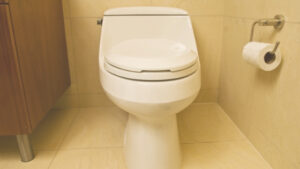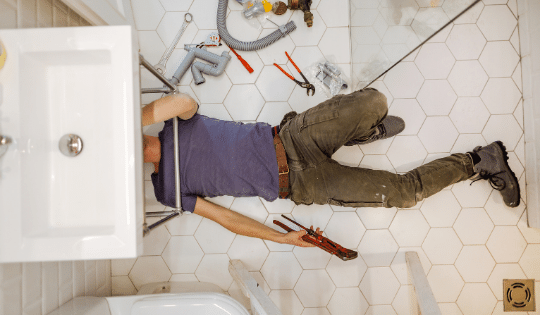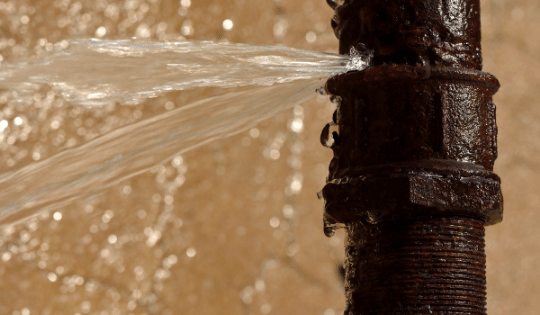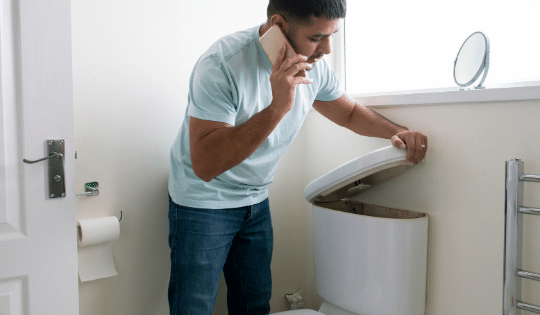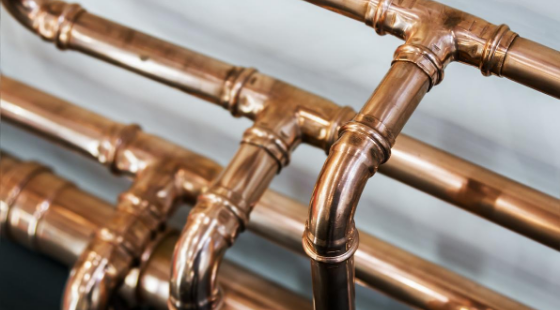At Tureks Plumbing Services, we make it our duty to educate our customers so that they can fix as many plumbing defects in their homes as they can before they have to call a plumbing professional. It is for the same reason that our experts share the different ways in which you can adjust the toilet filling valve if you see that the toilet tank is not being refilled after you’ve flushed, or that the water is still flowing out of the tank because the filling valve has failed to stop further inflows. In the article below, our Fox Valley plumbers share five ways to adjust the toilet fill valve.
What Is a Toilet Fill Valve?
Your toilet has two valves that work each time you use the toilet. The first valve is the flush valve, which allows water to move from the toilet tank to the toilet bowl when you flush. This flush valve closes once all the water has drained from the toilet tank.
The second valve is the toilet fill valve or ballcock. This valve is responsible for controlling the movement of water into the toilet tank. The valve opens when the tank is empty and then closes once the tank has filled to the predetermined level. As already mentioned, this valve may malfunction and either prevent water from flowing into the tank, or the valve fails to stop water from getting into the tank even when the tank is full. Our friends at McQuillan Bros, a plumbing company in Minneapolis, MN, explain that the specific steps that you take to adjust the fill valve will depend on the type of valve that is in your toilet tank.
How to Adjust Your Toilet’s Fill Valve
Adjusting a Piston/Plunger Ballcock
This type of fill valve depends on a ball attached to a float rod (made from brass) to control water flow into the toilet tank. As the ball moves up or down, the rod shifts and activates a plunger inside the ballcock assembly. That plumber can either let water through (if the ball moves downwards), or it can block the flow of water into the tank (if the ball moves upwards).
Adjusting this ballcock is, therefore, a simple task that entails gently bending the brass rod downwards or upwards, depending on your needs. For example, you can bend the rod upwards if the tank wasn’t filling up completely after you flush the toilet. Tureks Plumbing Services cautions that you shouldn’t raise the rod so high that the maximum level of water will exceed the top of the overflow tube. Conversely, you can bend the brass rod downwards if you notice that water was filling the tank to the point of overflowing.
Adjusting Brass Diaphragm Ballcocks
This type of ballcock resembles the plunger valve, except that there is no plunger stem in the brass diaphragm ballcock. The valve body is round and houses a diaphragm seal. Afloat rod moves this mechanism up and down to control water movement. As was the case for the piston valve, you also bend the float rod downwards or upwards in order to adjust the level at which water fills the tank.
Our plumbing company in Appleton, WI, also suggests that you may need to use penetrating oil to free the button of the diaphragm cup if mineral deposits or sediment have locked it in the closed position. Manually push the button down and up multiple times until it can move freely.
Adjusting Plastic Diaphragm Ballcocks
Recent models of plastic diaphragm ballcocks come with an adjustment screw that you can use to alter the fill level of the toilet tank. Turn this screw clockwise if you want to lower the fill level. Conversely, turn the adjustment screw counterclockwise when you want the fill level to be higher.
Adjusting Fill Valves That Have Float Cups
Most toilet assemblies now come equipped with a fill valve that has a float cup, so if yours is a newer house, then it is most likely to have this type of fill valve. The flow of water in such a system is regulated by a cylindrical plastic float. This float moves down or up along the shaft of the fill valve.
A metallic spring keeps the float cup attached to a small float rod. Tureks Plumbing Services advises that you can simply press both sides of this spring and then move the float cup downwards or upwards in order to adjust the fill level of that toilet tank.
Some models of this type of fill valve come with screws that you can adjust to raise or lower the fill level. Check for such a screw and manipulate it to change the level at which the tank fills.
Adjusting Pressure-Activated Fill Valves
Truly floatless fill valves depend on pressure differences to regulate the flow of water into the toilet tank. In this case, the fill valve sits inside the water in the tank. Sensors in the valve detect the pressure differences and cause the valve to move up or down. Check the top of the fill valve and locate the adjustment screw found there. Turn this screw clockwise to raise the fill level or turn it counterclockwise if you want to lower the fill level.
As you can see, the task of adjusting the fill valve is easy once you identify the type of valve in your toilet tank. Contact a plumber in Appleton, WI, for help if you aren’t able to correct the water flow anomaly in your toilet tank despite implementing the tips above. Tureks Plumbing Services offers 24/7 emergency plumbing services in Appleton, WI, so reach out any time you need our services.
Editor’s note: This post was originally published in March 2019 and has been completely revamped and updated for accuracy and comprehensiveness.


